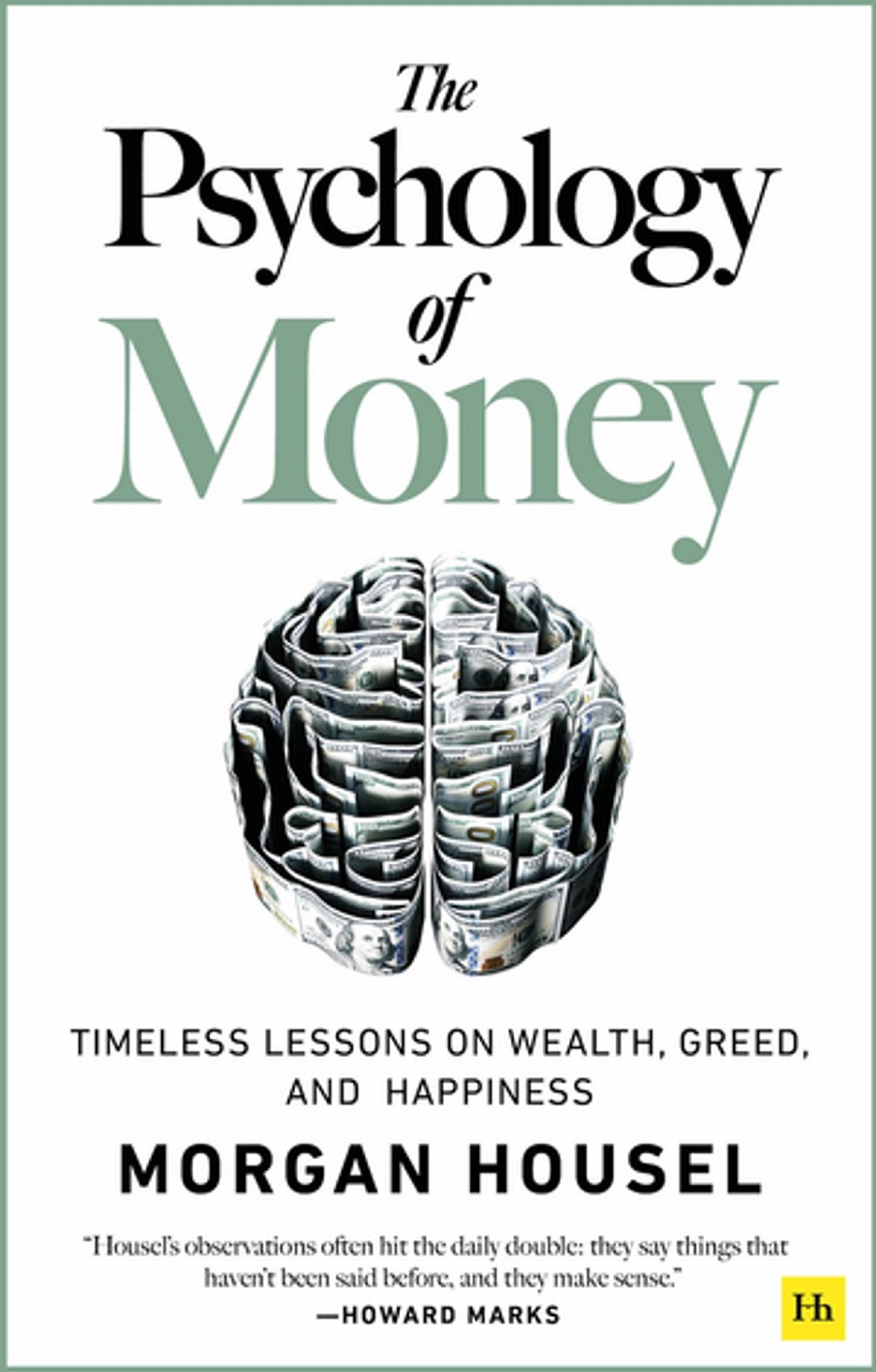In the world of personal finance, Morgan Housel’s “The Psychology of Money” is like that friend telling you to break up with your crusty boyfriend. Except the boyfriend in this case is your spending habits. Forget about complicated stock market graphs or finance bros telling you to go all in crypto. This book is here to remind you that the biggest obstacle to becoming rich is, well, you. Or more specifically, the bizarre way your brain handles money.

Let’s start with a little-known fact: money is complicated. It is not just a tool for purchasing things – no, it’s a social status, a personal ego trip, and sometimes even an existential crisis. Why do you think middle-aged men end up buying a sports car? Housel explains that people make wacky decisions with money because of emotions, past experiences, and sometimes sheer panic. Apparently, there is more to investing than staring at a graph and crossing your fingers – who would’ve thought?
Lesson 1: You are Probably Not as Rational as You Think
For all my girls out there: Have you ever gone to Starbucks and used your preloaded card thinking it was free? I hate to be the bearer of bad news, but this girl math just won’t cut it.
Housel lays out how people invest not based on their smarts but on their emotions and personal experiences. If your parents were broke, you probably hoard cash in a sock drawer somewhere. If you grew up in the dot-com boom, you might think every tech company is the next Amazon.
Housel says it best: “People do crazy things with money.” You might tell yourself that you’re playing the stock market cool, but when your neighbor pulls up in a new Tesla, suddenly you’re on the Robinhood app trying to buy NVIDIA stock because it can only go up… right? Remember, the most dangerous thing in the financial world isn’t a market crash—it’s FOMO.
Lesson 2: Wealth is What You Don’t See (Sorry Instagram)
Here’s the kicker: being rich and looking rich are two completely different things. According to Housel, wealth is what you don’t see—the savings, the investments, the money quietly growing in the background.

On the flip side, what you do see is that guy flaunting a new sports car who probably has $12 in his savings account and a debt-to-income ratio that would make Dave Ramsey faint.
This is why flexing wealth is kind of like wearing fake designer clothes—you might look good from a distance, but up close, it’s all unraveling. Housel tells you to forget about showing off and focus on the less glamorous but far more satisfying task of not going broke. After all, the best flex is financial independence, not that Gucci belt you can barely afford.
Lesson 3: Long-Term Thinking is the Only Thinking That Matters
Now, for some tough love: you need to chill out. One of Housel’s big lessons is that investing is a long game, and no, day-trading your life savings won’t make you a millionaire by next Friday. People who win with money don’t try to predict the market every five seconds—they focus on consistent, boring growth over decades. It’s not flashy, but it works.
Think of it this way: investing is like planting a tree. You don’t yank it out of the ground every other day to see if it’s grown, and you don’t panic and chop it down when a storm hits. You water it, you let it get some sunlight, and then you go live your life while it quietly grows into something impressive.
Lesson 4: Nobody Knows Anything
You’d think by now we’d have all the answers about money, right? Wrong. According to Housel, nobody knows what the future holds for the economy, the stock market, or your crypto wallet. The experts are basically guessing, and the sooner you accept that, the better.
It’s kind of freeing, really. You don’t have to stress about predicting the next big market boom or figuring out when a crash is coming, because, guess what? No one else knows either. Just focus on what you can control: save, invest, and, most importantly, don’t panic when things get bumpy. After all, the market will go up and down more than a toddler on a sugar high, but if you keep calm and carry on, you’ll be fine.
Conclusion: Looks Like Money Isn’t That Complicated (But You Are)
At the end of the day, “The Psychology of Money” is a humbling reminder that you’re not a financial genius (sorry) and that money is as much about mindset as it is about math. The key to financial success? Keep your emotions in check, stop comparing yourself to others, and let time work its magic on your investments. Oh, and maybe stop buying stuff you don’t need just to impress people you don’t really like.
So, next time you’re tempted to make a rash financial decision, just remember Housel’s golden rule: mastering money isn’t about having the highest IQ—it’s about not doing dumb stuff. Now if only that were as easy as it sounds.




